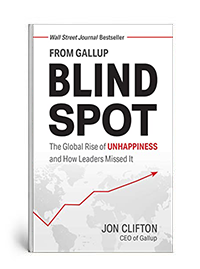Friends,
Welcome to my 20th quarterly newsletter. In earlier letters, I addressed forgiveness and kindness. In this one, I want to address an opposite emotion … ANGER.
Anger, like all negative emotions, can serve a purpose. Anger helps us ensure that our needs are being met and that we are being heard and recognized. But – and it is a big but – anger is always problematical and there are better ways to stand up for ourselves that do not invoke the negative consequences associated with anger. The root of the word “anger” might just suggest why this emotion is problematic. It comes from the Latin “angere” meaning “to strangle.” And before we begin, I must admit I, like most of you, struggle with this emotion. We are not alone. In the U.S. it is estimated that more than 40% of us are perpetually angry, a state that does not serve us well.
To understand why anger is so prevalent and so difficult for us to release, it helps to recognize that anger is a very complex emotion – complex in that it contains both pain and pleasure. We feel pain due to the hurt or perceived hurt someone has caused us and we derive a sick kind of pleasure as we contemplate revenge or plan to strike back, causing harm to the perpetrator. This pleasure entices us to hang on to the anger and revisit the hurtful event over and over again. We seek to retaliate in two ways, known by psychologists as the “road to payback”, wherein we seek to make the wrongdoer simply suffer some form of pain, and “the road to status”, wherein we try to “downrank” the wrongdoer through humiliation and thereby raise our own status.
By following either path, we make the mistake of thinking that our action will somehow restore what has been damaged, by balancing the pain. Of course, such actions have no restorative value. A few years ago, when I was teaching at Canyon Ranch, one of the participants said she was looking forward to going back to her 50th elementary school reunion. Then she shared why: “When I was in grade school, this girl Sarah made fun of me and embarrassed me in front of all the other students, and I plan to confront her about it at the reunion in front of everyone there.” For 50 years, she has been angered by the pain this situation had caused and longed for the opportunity to strike back. I don’t think her anger is unique. We seem to hang on to the hurts others have caused us for years as if they are cherished pets. For the angry person time does not move forward, but circles continuously back to whatever event caused them pain.
Medea is an ancient Greek tragedy written by Euripides. It was first performed in 431 BC. Medea is the angry protagonist, a betrayed wife and abandoned mother. Her husband Jason has left her for another woman. She vows revenge. She states in the opening monologue that her anger is morally right and justified and the audience likely agrees. But as the play progresses, the hideousness of her anger and actions becomes evident. She poisons Jason’s new lover and her father, but even these acts do not satisfy her desire for revenge. She kills her own children to inflict maximum pain on Jason and tosses them down from the rooftop to him, despite the fact that their death will deprive her of love, a fact of which she long since lost sight. While few abandoned spouses kill their own children to avenge their betrayer, many carry a desire for revenge and a longing to inflict pain. These feelings, even if never acted upon, carry significant collateral damage. The ill will seeps out into their relationships with their children and other family members surrounding them and to their own ability move on and experience happiness.
People often say: “I have a right to be angry.” Of course they do. We have a right to feel almost any way we choose. But the question has to be, does anger serve us well? Anger is not needed for justice to prevail, nor for us to defend ourselves, nor to ensure our perspectives and needs are met. In fact, it is usually an impediment to meeting these objectives. Most importantly, anger has some very serious consequences to the person holding the anger. Anger is a “fight response” emanating from the most primitive part of our brains. When we feel angry and prepare to fight, our hearts contract and beat faster, blood pressure rises, blood sugar increases, digestion slows down, our adrenal and pituitary glands begin releasing adrenalin, cortisol, and other harmful hormones, muscles tighten, blood vessels narrow… I could go on. If we were really heading into battle, these responses would be helpful. But for simply looking out for our day-to-day interests, these stress responses are anything but helpful. When repeated frequently or maintained over long periods of time, they become incredibly physically destructive. In The Body Keeps the Score by Bessel Van Der Kork, the author cites recent scientific research to show how sustained fight responses, literally reshape both our body and brain, compromising our capacities for pleasure, engagement, self-control, trust, and actually shortening our lives. Sustained anger closely correlates with the incidence of heart disease, cancer, and a myriad of other life-threatening illnesses.
I think part of the reason anger is so prevalent is that many people continue to think anger is good, powerful, and manly. That without anger we cannot defend ourselves. Anger is not required. Injustice should be met with courage, with clarity, and with sound reason. Here is the thing. I think there is nothing that I could say to the Dalai Lama that would make him angry. I think he recognizes the shortcomings of anger and has such complete control of his emotions that he would be able to respond without anger. Would that I could do the same.
In the end, anger, while in the short term, is understandable, it is always problematical and there is always a better way to respond, for our benefit and that of others.
If you have read this far, thank you. I would love to hear your thoughts.
Be well … better yet thrive.

–Douglas. A. Smith
“You only have to forgive once. To resent, you have to do it all day, every day, all the time, you have to remember the bad things over and over. It’s too much work.”
–M. L. Stedman, The Light Between the Oceans
From the bookshelf!
Books I am reading and highly recommend.



